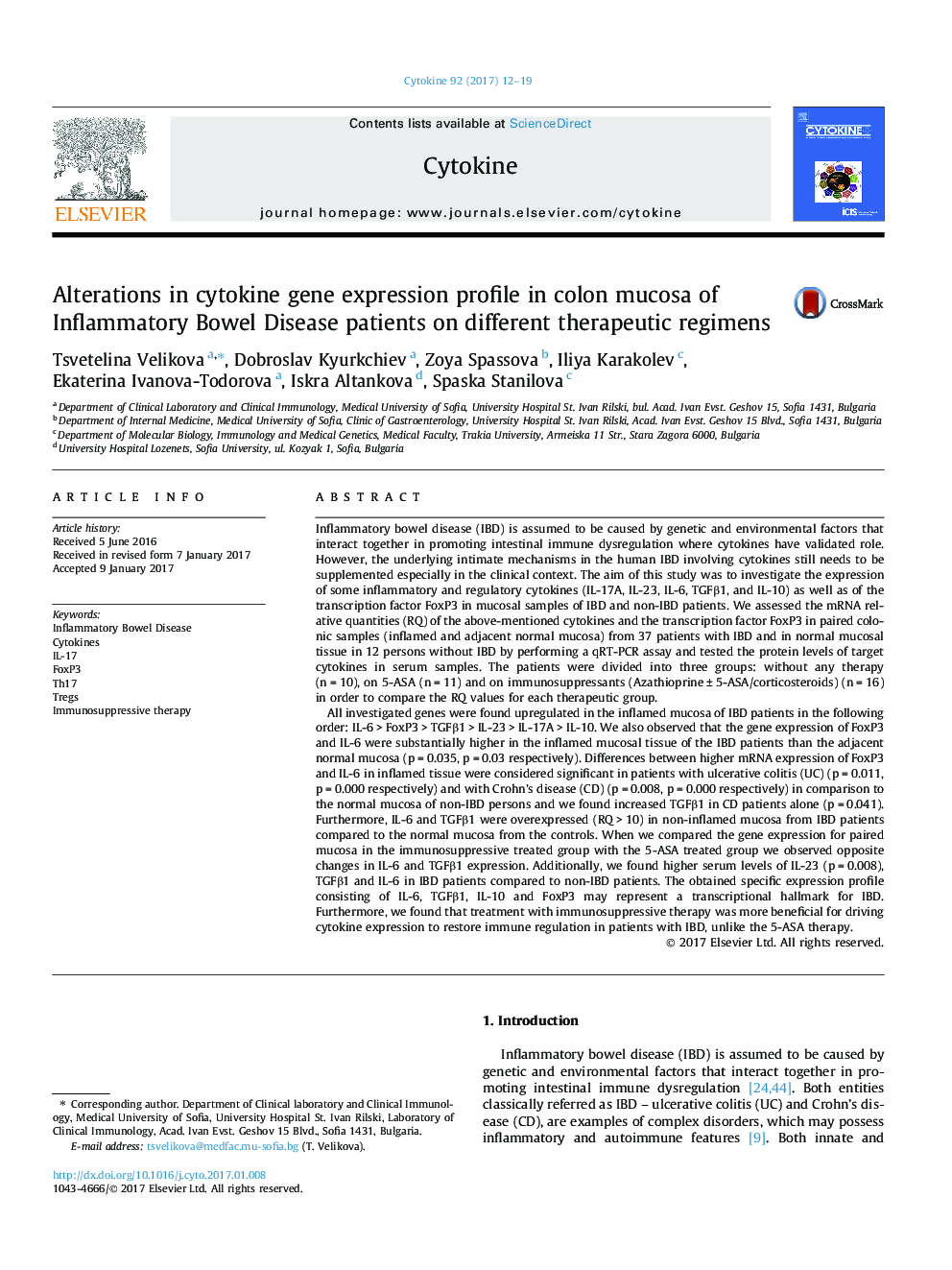| Article ID | Journal | Published Year | Pages | File Type |
|---|---|---|---|---|
| 5586770 | Cytokine | 2017 | 8 Pages |
Abstract
All investigated genes were found upregulated in the inflamed mucosa of IBD patients in the following order: IL-6 > FoxP3 > TGFβ1 > IL-23 > IL-17A > IL-10. We also observed that the gene expression of FoxP3 and IL-6 were substantially higher in the inflamed mucosal tissue of the IBD patients than the adjacent normal mucosa (p = 0.035, p = 0.03 respectively). Differences between higher mRNA expression of FoxP3 and IL-6 in inflamed tissue were considered significant in patients with ulcerative colitis (UC) (p = 0.011, p = 0.000 respectively) and with Crohn's disease (CD) (p = 0.008, p = 0.000 respectively) in comparison to the normal mucosa of non-IBD persons and we found increased TGFβ1 in CD patients alone (p = 0.041). Furthermore, IL-6 and TGFβ1 were overexpressed (RQ > 10) in non-inflamed mucosa from IBD patients compared to the normal mucosa from the controls. When we compared the gene expression for paired mucosa in the immunosuppressive treated group with the 5-ASA treated group we observed opposite changes in IL-6 and TGFβ1 expression. Additionally, we found higher serum levels of IL-23 (p = 0.008), TGFβ1 and IL-6 in IBD patients compared to non-IBD patients. The obtained specific expression profile consisting of IL-6, TGFβ1, IL-10 and FoxP3 may represent a transcriptional hallmark for IBD. Furthermore, we found that treatment with immunosuppressive therapy was more beneficial for driving cytokine expression to restore immune regulation in patients with IBD, unlike the 5-ASA therapy.
Related Topics
Life Sciences
Biochemistry, Genetics and Molecular Biology
Endocrinology
Authors
Tsvetelina Velikova, Dobroslav Kyurkchiev, Zoya Spassova, Iliya Karakolev, Ekaterina Ivanova-Todorova, Iskra Altankova, Spaska Stanilova,
